Education
Drastic staffing cuts at the Education Department to be reviewed
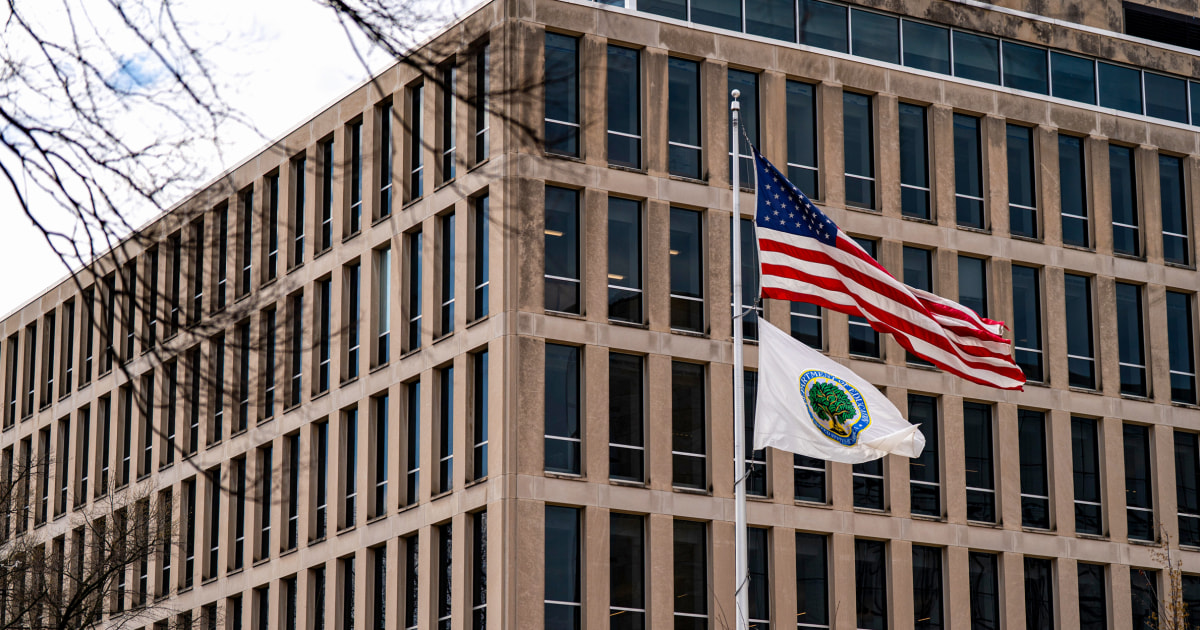
The Education Department’s Office of Inspector General plans to conduct a “series of reviews” into the recent mass layoffs at the nation’s education agency, according to a letter obtained by NBC News.
The probe comes amid efforts by the Trump administration to dismantle the U.S. Education Department, which President Donald Trump has long wanted to do but cannot fully achieve without congressional approval.
That has not stopped him from trying. In March, Trump signed an executive order directing Education Secretary Linda McMahon to begin winding down the department. The order came shortly after the Education Department announced it was reducing its workforce by about 50%, which McMahon said reflected the department’s commitment to “efficiency, accountability, and ensuring that resources are directed where they matter most: to students, parents, and teachers.”
Trump has said he wants states to have oversight over the education system. The federal workforce cuts have alarmed education advocates, who worry the layoffs will lead to fewer resources for disadvantaged students and other problems.
A group of 11 Democratic senators expressed their concerns to the Education Department’s acting inspector general, René Rocque, writing to her on March 27 to ask for an investigation into the Trump administration’s intention to dissolve the department and warning that the cuts could have “disastrous consequences.”
The department’s Office of Inspector General confirmed Thursday that it had responded to the senators but declined to provide further comment.
In the department’s letter to the senators, which was sent Wednesday to the senators and viewed by NBC News, Rocque wrote that the office would conduct “a series of reviews to provide information on the Department’s programs and operations following recent workforce changes.” She said in the letter that she hoped to report on her office’s progress this summer and that she would share results of the reviews with the senators.
She also wrote that her staff would conduct reviews of selected offices in the department to identify the effects of staffing cuts, and their reports would include suggestions to “help ensure productive and efficient operations” following the workforce changes.
The Office of Inspector General is an independent entity within the Education Department that is tasked with identifying fraud and criminal activity involving department funds and operations. The Trump administration did not immediately respond to a request for comment on the office’s plans to conduct reviews into the mass layoffs.
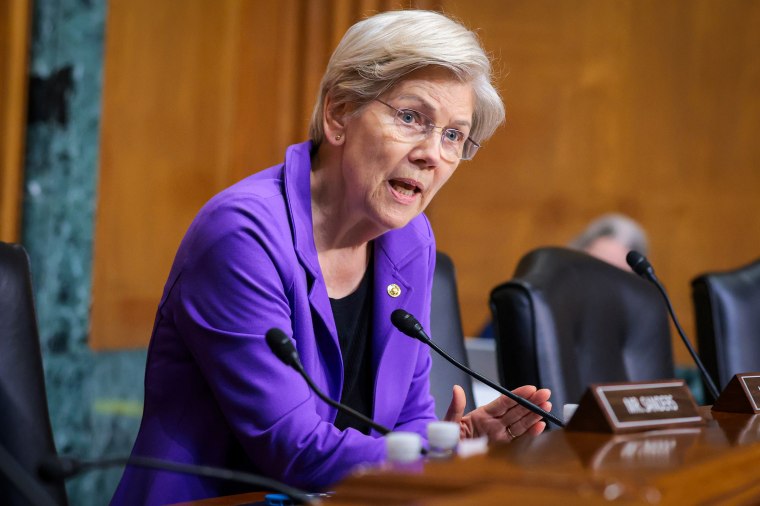
Sen. Elizabeth Warren of Massachusetts, one of the Democrats who had asked for an investigation, said she was pleased with the office’s decision. The senators had asked for an evaluation of the financial feasibility of state and local governments taking over education funding and for an analysis of the possible far-reaching effects of dismantling the Education Department.
“I called for an independent investigation into Donald Trump’s dismantling of the Department of Education after hearing from parents, teachers, and students about the chaos he unleashed,” Warren, who has launched a campaign called “Save Our Schools” to defend public education, said in a statement to NBC News. “This investigation will help reveal what’s at stake for those families.”
The National Education Association, the country’s largest teachers union, called the reviews “a positive first step,” though the group’s president, Becky Pringle, said in a statement that she believed “Congress and the courts need to step in.”
“Firing — without cause — nearly half of the Department of Education staff means those who ensure students can access educational opportunities without discrimination are no longer able to help,” she said in a statement to NBC News. “The dedicated public servants who helped families navigating the federal student aid process, ensured colleges provided the programs they advertised, and that loan servers did not improperly profit off students are gone. And the experts who track student achievement are no longer there to do their jobs.”
Education
Havard students and faculty face the fallout from a showdown with Trump

After freezing $2.2 billion in funding, the Trump administration has also singled out Harvard in other key ways: It threatened the university’s nonprofit status and its ability to host international students and faculty, who comprise roughly a quarter of the student body and help fuel research in every part of the school.
Some faculty expressed concern that Harvard would no longer be able to attract top talent. “This is the United States saying to the best and brightest minds around the world that you are not welcome,” said Tarek Masoud, a professor of democracy and governance at the Harvard Kennedy School.
Abdullah Shahid Sial, the undergraduate student body co-president, came to Cambridge from Lahore, Pakistan, hoping to work with the “greatest professors in the world.” Now, he’s written an op-ed to run in The Harvard Crimson in case he is deported for speaking out. “If at any point they want me out, then I would rather go in a much more dignified manner,” he said.
One Harvard scientist was detained and at least 11 other people affiliated with the university have lost their visas in recent weeks, though some were restored by the government on Friday.
In an interview Wednesday, two days after the university filed suit to try to win back its federal funding, Harvard President Alan Garber stood by the school’s decision to take a stand.
“It’s bigger than Harvard,” Garber told “NBC Nightly News” anchor Lester Holt. “We are defending what I believe is one of the most important linchpins of the American economy and way of life — our universities.”
Harrison Fields, a White House spokesperson, criticized the university’s response. “Colleges are hooked on federal cash, and Mr. Garber’s public outburst only fuels the push to shut off the taxpayer money propping up their institution,” he said.
With final exams and graduation now looming, many are bracing for a prolonged battle that could have reverberations for years to come.
Steven Pinker, a well-known psychology professor, co-founded the Council on Academic Freedom at Harvard to promote “free inquiry, intellectual diversity and civil discourse.” He agrees with criticism that Harvard needs more viewpoint diversity but thinks the government’s demands go way too far, he said.
Harvard was told, among other demands in an April 11 letter, to increase viewpoint diversity among faculty and students (subject to the government’s approval), submit its hiring to a federal audit for more than three years, and use an ideological test on admissions for international students.
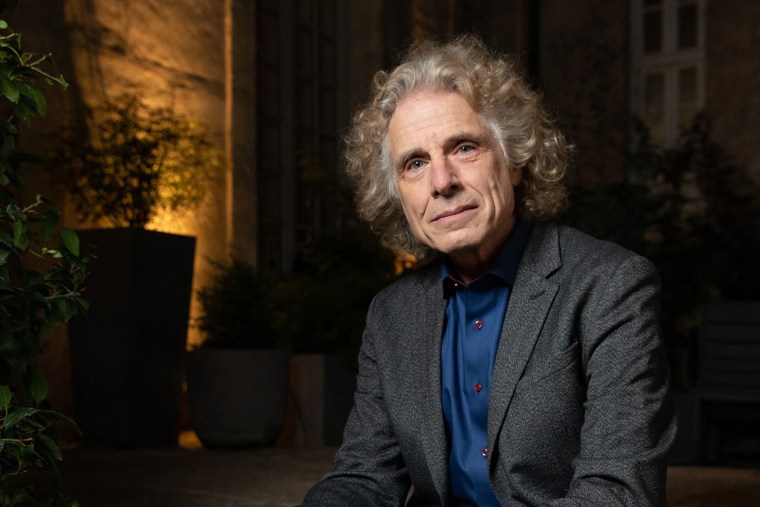
“I just don’t think Donald Trump has the statutory power to force his vision of viewpoint diversity on private universities,” Pinker said. “Could that mean that we have to have anti-vaxxers in the medical school? Does it mean we have to have ‘Stop the Steal’ theorists in the history department? MAGA theorists in political science programs? You just don’t want to give the government the power to make those decisions.”
When Harvard refused to comply, the Trump administration doubled down. In a letter sent April 16, the U.S. Department of Homeland Security demanded that Harvard provide the names of all international students who have “participated in protests” and their “disciplinary records,” with a deadline of April 30, after which it threatened to revoke Harvard’s ability to host international students.
Harvard has not yet said how it will respond and didn’t reply to questions about its plans.
Some international students feel caught in the crossfire between Harvard and the Trump administration.
“We’re being used as poker chips in a battle with the White House,” said Leo Gerdén, a senior from Stockholm, Sweden. “None of us wanted to take this fight.”

Sial, the student body co-president, is now working with administrators to ensure summer housing on campus for the increased number of international students planning to bunker down in Cambridge out of fear they’ll be prevented from re-entering the country.
Several other international students spoke on the condition of anonymity to avoid threatening their student visa status. They described this moment at Harvard as a doubly difficult: Already under threat of losing their visas — like more than 1,800 international students and recent graduates reportedly have nationwide, prior to the administration’s reversal this week — they’re also at the school that Trump is most closely scrutinizing.
One international law student said she won’t walk near protests, has taken down her social media profiles or made them private and looked into finishing her degree abroad. She keeps emergency hotline numbers and her passport with her at all times in case she is approached.
“I have no disciplinary record. I have no criminal record. I have nothing. And I’m a good student,” she said. “And, sure, I care about things, but that’s why you come to law school.”
An international environmental studies student said they now plan to leave the country once they finish their degree.
“I’m just trying to protect rivers and waterways and the environment,” they said, “and I don’t feel particularly wanted here.”
They regularly have to visit different states to conduct surveys but say they are now more fearful of travel.
“Just having the Harvard international student label on me,” they said, “it makes me a lot more anxious about being around airports or being around security.”
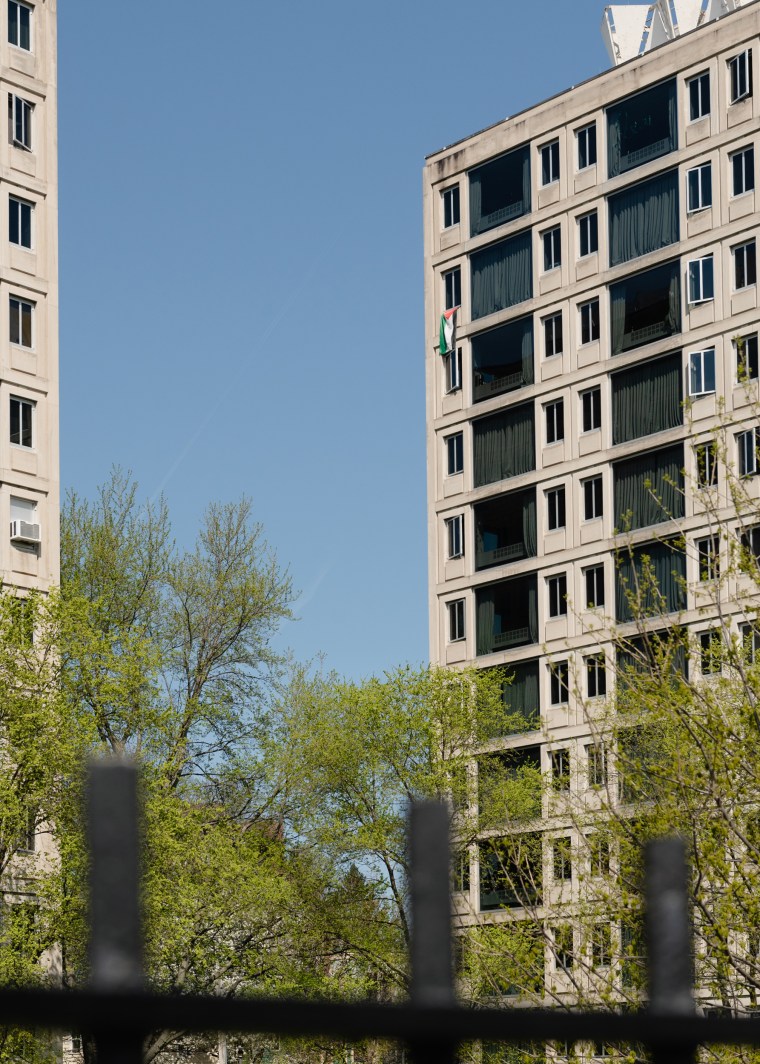
An undergraduate international student who attended last year’s Harvard encampment and got doxed for their pro-Palestinian activism said they moved off campus and stopped attending classes in person for two weeks, triggered by the detention of Tufts University graduate student Rumeysa Ozturk. They have canceled an academic trip to Europe and skipped out on iftars during Ramadan — communal meals where Muslims break their fast during the Islamic holy month — worried that ICE might target such gatherings.
“I don’t feel safe at all being around protests and voices, which actually kills me from the inside, because I want to go there, and I want to voice my opinion,” they said.
Though some students applauded Harvard’s stand against Trump, others have mixed feelings about the school’s response thus far.
Three students said the university had already acquiesced to some extent, even before the April 11 letter. They pointed to the firing of the Center for Middle Eastern Studies’ faculty heads, suspending the Harvard Divinity School’s long-standing Religion, Conflict and Peace Initiative, and pausing the School of Public Health’s research partnership with a Palestinian university.
Harvard didn’t respond to questions about these concerns. But Masoud, of the Harvard Kennedy School, said he thought those changes would have happened even if Trump hadn’t been elected.
Education
Columbia protesters are a no-show after plans for new encampments were revealed
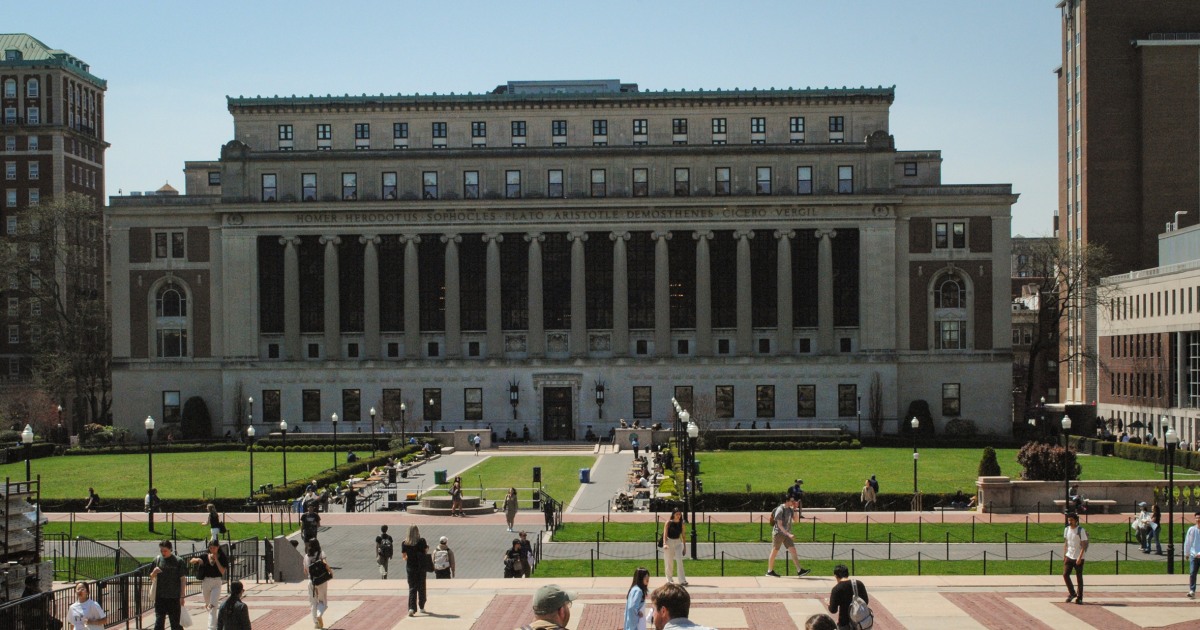
Protesters did not set up new tent encampments or demonstrate against the war in Gaza at Columbia University on Thursday as planned.
NBC News reported Wednesday that a group planned to set up tent encampments on the New York City school’s main campus Thursday afternoon.
The encampments would have been likely to inflame tension at the Ivy League school, which for weeks has been at the center of a tug-of-war between the federal government and its students.
They would have been the first tent cities at the university since students took over a building last year and since the Trump administration embraced an aggressive approach to target what it describes as a failure to deal with antisemitism on college campuses.
More than 100 protesters met Tuesday at a community center in Brooklyn’s Bushwick neighborhood to coordinate tent encampments at Columbia for this week. Organizers, whose identities remain unknown, went to extreme lengths to conceal their plans.
NBC News obtained a recording of the meeting, which revealed that students were planning an encampment Thursday at the university’s main campus in Manhattan’s Morningside Heights neighborhood and a second encampment Friday at the nearby Manhattanville campus.
It is unclear whether the encampment planned for Friday will proceed.
Instead of protests Thursday, the scene on campus included students enjoying one of the first warm days in New York City this spring. Dozens of students lay out beach towels, snapped selfies under the sun and tossed around Frisbees.
There were, however, signs of what the day was expected to bring.
Outside the university gates on 116th Street and Broadway, several New York police officers gathered — but they were gone by 2 p.m., an hour after the protests had been expected to begin.
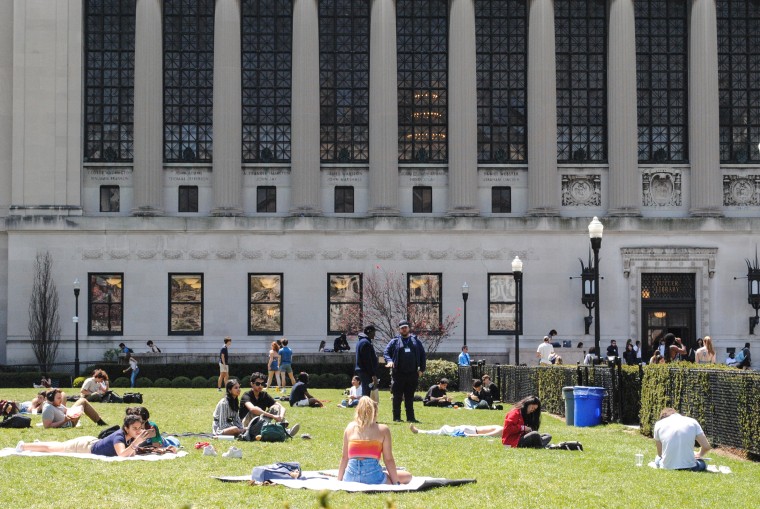
A handful of people who appeared to be security guards in plainclothes circled the planned site of Thursday’s protest before it was expected to begin.
Donovan Cole, 27, a Ph.D. student studying philosophy and education, said the student body’s attitude toward protests seems to have changed since the encampments a year ago. Gone are the days when students felt free to set up tents, take over academic buildings and march for days, as they did last spring, he said.
“There was obviously an antagonistic relationship between the student body and the institution last year. But at the core of that was a kind of faith … that they were both engaging in at least some degree of good faith,” he said. “The student body has sort of felt that’s no longer the case and, rather than producing a sort of stronger outcry of protest, has produced actual legitimate fear in the student body.”
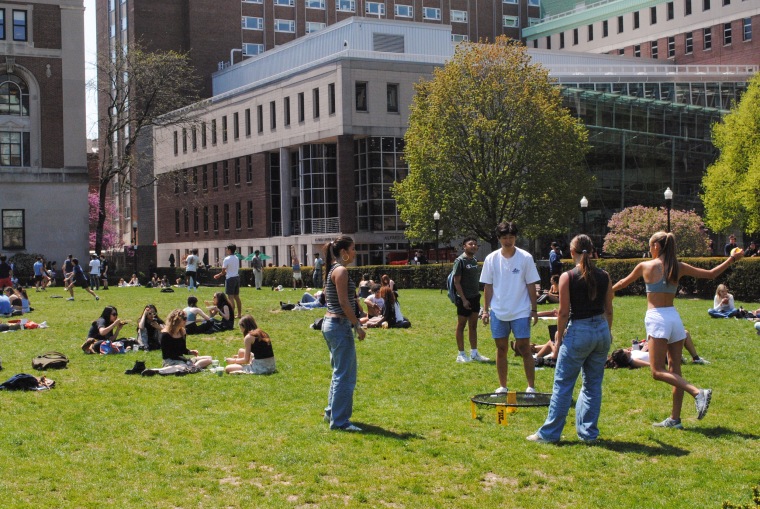
Last month, the Trump administration began terminating federal research grants at several of the country’s most prestigious universities, demanding significant changes to how schools operate. The administration has argued that the universities failed to protect Jewish students amid war protests.
Columbia was the first university the administration targeted. It conceded to a number of the government’s requests, including that it adjust its admissions process, implement “greater institutional neutrality” and hire three dozen new security officers.
The administration similarly challenged Harvard University, which rejected its proposals and sued the federal government.
On Wednesday, President Donald Trump signed a series of executive actions that would enforce stricter oversight of foreign donations to universities and change how they are accredited.
Immigration authorities have apprehended at least three Columbia students in recent weeks. Among them was graduate student Mahmoud Khalil, who helped lead student protests last year.
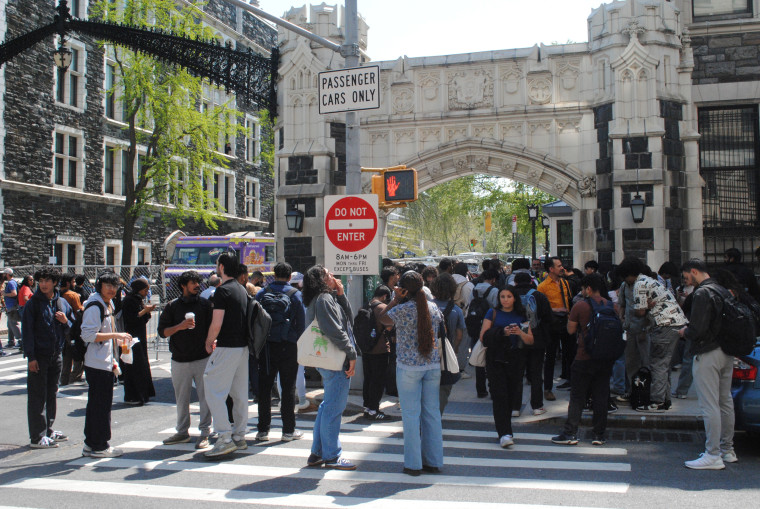
About 45 minutes after the protest at Columbia was expected to start, pro-Palestinian student advocates affiliated with City College of New York announced on social media that they were staging a protest at the nearby public college.
It is unclear whether protesters who had intended to be part of the planned Columbia encampment were among the roughly 50 people who gathered outside CCNY’s gates Thursday afternoon, wearing masks and Palestinian keffiyehs.
However, a student protest group affiliated with Columbia shared the CCNY group’s post on social media.
CCNY closed its gates and appeared to start barring students from entering campus while the protest ensued.
On Tuesday, a crowd of protesters at Yale University set up a handful of tents on campus before they disbanded a few hours later.
Education
Tufts student Rümeysa Öztürk must be moved to Vermont, judge rules
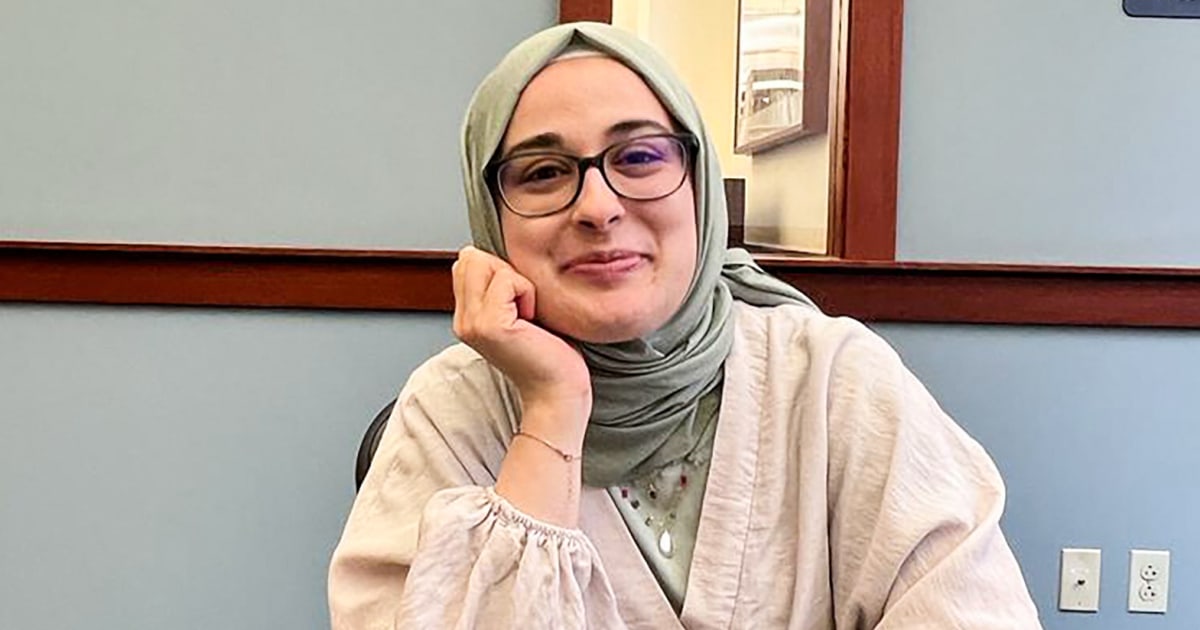
A judge on Thursday denied the government’s request to pause the transfer of Tufts University student Rümeysa Öztürk, who is fighting deportation after writing an essay about Israel and the war in Gaza, back to Vermont.
U.S. District Judge William K. Sessions ruled that the federal government is now obligated to ensure that Ozturk, who is being held in Louisiana, be moved to Vermont by May 1. The decision comes after the Justice Department appealed Sessions’ previous order to transfer Ozturk to Vermont, where her habeas corpus petition challenging her detainment was filed. Federal officials had also asked the judge to pause the order from taking effect while on appeal.
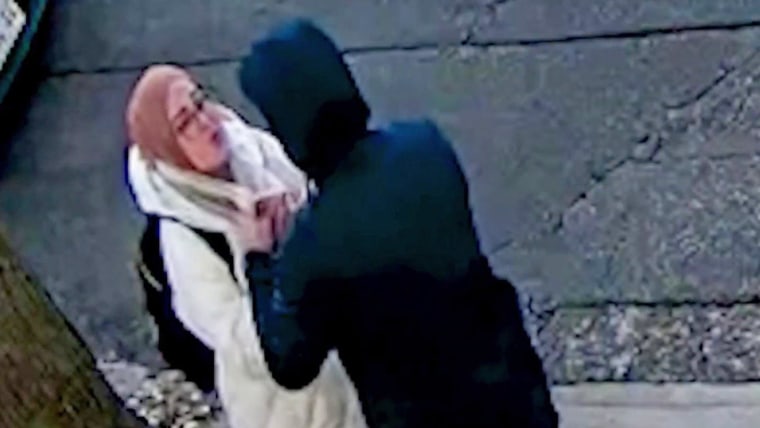
Brett Max Kaufman, senior staff attorney for the American Civil Liberties Union, which represents Ozturk, criticized the government’s attempts to pause the student’s transfer.
“For four weeks, the government has been detaining Ms. Ozturk for writing an op-ed,” Kaufman said in a statement Thursday afternoon order. “And now, it is doing everything within its power to avoid having to justify what it has done, including filing a hail-mary appeal hoping to stop the district court from deciding her claims.”
Neither the DOJ, Department of Homeland Security nor Immigration and Customs Enforcement immediately responded to requests for comment.
In his order, the judge said that any delay of Ozturk’s transfer could prolong “the very detention that is at the heart of this case.”
Last week, Sessions ordered the administration to transfer Öztürk back to Vermont while her habeas petition plays out in federal court. Her deportation case in immigration court in Louisiana would also proceed while she is detained in Vermont.
The government appealed the order days later to the United States Court of Appeals for the Second Circuit, which has yet to weigh in. Soon after, Ozturk’s attorneys opposed the government’s request to pause the judge’s previous order.
“Only one party — Ms. Öztürk — would suffer any harm from a stay, and that harm is irreparable,” Ozturk’s attorneys wrote in court filings. “By contrast, the government suffers no harm at all by holding Ms. Öztürk in detention in Vermont instead of Louisiana and being compelled to justify her continued detention.”
Department of Homeland Security agents grabbed Öztürk, a doctoral student in the United States on a student visa, off a Massachusetts street in late March. DHS accused her of engaging “in activities in support of Hamas.”
Last year, Öztürk co-wrote an op-ed in the Tufts student newspaper that called on the school to “acknowledge the Palestinian genocide” and divest from companies with ties to Israel. The school has said that the essay did not violate its policies.
Öztürk was moved to three locations, including Vermont, before she ended up in Louisiana, despite an order from a district court that said she could not be moved out of Massachusetts without notice.
“For nearly 24 hours, Ms. Öztürk’s attorney was unable to locate her,” the ACLU said in a news release.
Facilities in rural Louisiana have been the subject of human rights criticisms, and immigration advocates say the Trump administration has sent students to a jurisdiction that is more aligned with its immigration goals.
“They’re being placed in facilities that have pretty horrendous conditions, a lot of difficulties with access to counsel and in what is really a more hostile legal jurisdiction to fight their case for the right to remain in the United States,” Mary Yanik, the director of the Immigrant Rights Clinic at Tulane Law School in New Orleans, previously told NBC News.
On Tuesday, a congressional delegation led by Rep. Troy Carter, D-La., visited ICE facilities in Louisiana. The members met with Öztürk and Columbia University student Mahmoud Khalil, a pro-Palestinian activist and green-card holder who was arrested and detained in early March.
“From our communications with these individuals, they’re frightened, they’re concerned. They want to go home,” Carter told reporters after the visit. “They’re happy to see that members of Congress are here to listen, to take good notes, to go back to Washington to ensure that due process is granted, health care is provided and fairness is the rule of day.”
-
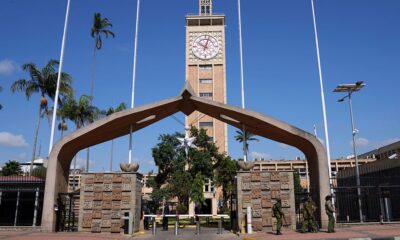
 Africa2 days ago
Africa2 days agoKenya set to surpass Ethiopia as East Africa’s largest economy in 2025 – IMF
-

 Education12 hours ago
Education12 hours agoHavard students and faculty face the fallout from a showdown with Trump
-

 Education2 days ago
Education2 days agoColumbia protesters are a no-show after plans for new encampments were revealed
-

 Lifestyle2 days ago
Lifestyle2 days agoCanadians put off by Trump’s bluster and border arrests are booking far fewer US visits
-

 Conflict Zones2 days ago
Conflict Zones2 days ago‘We are condemned’: Kashmiri tourism pays the price of Pahalgam killings | Tourism News
-

 Middle East1 day ago
Middle East1 day agoUN says its food stocks in Gaza completely ‘depleted’ amid Israeli blockade | Gaza News
-

 Europe1 day ago
Europe1 day agoCardinals seal Pope Francis’ coffin, formally ending his lying in state at the Vatican
-
Conflict Zones2 days ago
‘We’re cursed’: Kashmiris under attack across India after Pahalgam killings | Armed Groups News




